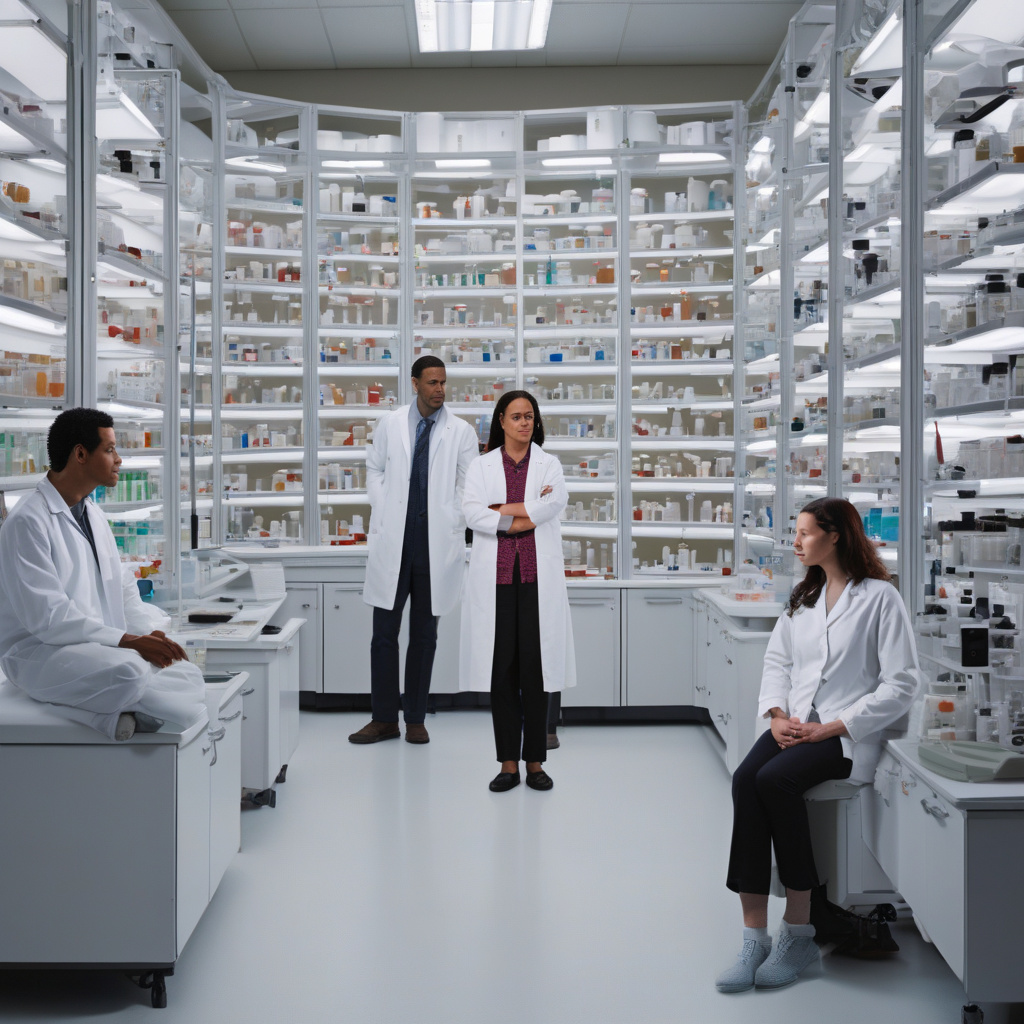MIT AI Reveals How Antibiotic Targets Crohn’s Bacteria
Researchers at MIT have made a groundbreaking discovery in the fight against Crohn’s disease. By harnessing the power of artificial intelligence (AI), they have uncovered how a new antibiotic can selectively target the bacteria responsible for this debilitating condition.
Crohn’s disease is a chronic inflammatory disorder of the gastrointestinal tract that affects millions of people worldwide. One of the key challenges in treating Crohn’s is targeting the specific bacteria that drive the inflammation while preserving the beneficial bacteria that are essential for gut health. Traditional antibiotics often lack the precision to distinguish between harmful and helpful bacteria, leading to widespread disruption of the gut microbiome.
The team at MIT set out to address this challenge by developing a novel antibiotic that could selectively target the bacteria associated with Crohn’s disease. To achieve this, they turned to AI to analyze vast amounts of data on the gut microbiome and identify potential drug targets. By training their AI algorithm on this data, the researchers were able to pinpoint specific vulnerabilities in the disease-causing bacteria that could be exploited by a new antibiotic.
The results of their study, published in a recent issue of Science, revealed that the antibiotic developed by the MIT team was highly effective at targeting the bacteria responsible for driving inflammation in Crohn’s disease. Moreover, the AI-driven approach allowed the researchers to fine-tune the antibiotic’s specificity, minimizing its impact on beneficial gut bacteria.
This groundbreaking research not only offers new hope for patients with Crohn’s disease but also highlights the transformative potential of AI in drug discovery. By leveraging AI to analyze complex biological data, researchers can accelerate the identification of novel drug targets and develop precision therapies that target specific disease-causing mechanisms.
In addition to its implications for Crohn’s disease, the MIT study underscores the broader impact of AI on healthcare and drug development. AI-driven approaches have the potential to revolutionize the way we discover and develop new drugs, enabling researchers to uncover novel treatment options for a wide range of diseases.
As we look to the future, it is clear that AI will play an increasingly prominent role in driving innovation in healthcare. By combining the power of AI with the expertise of researchers and clinicians, we can unlock new insights into disease mechanisms and develop targeted therapies that offer new hope for patients.
The MIT team’s success in using AI to reveal how an antibiotic targets Crohn’s bacteria represents a significant milestone in the field of precision medicine. With further research and development, this AI-driven approach could pave the way for more effective treatments for Crohn’s disease and other conditions driven by dysbiosis in the gut microbiome.
In conclusion, the intersection of AI and healthcare holds immense promise for the future of medicine. By harnessing the power of AI to uncover novel insights into disease biology and drug discovery, researchers can develop more precise and effective treatments for a variety of conditions, including Crohn’s disease. The MIT study serves as a shining example of the potential of AI to transform healthcare and improve patient outcomes.
AI, MIT, Antibiotic, Crohn’s Bacteria, PrecisionMedicine
